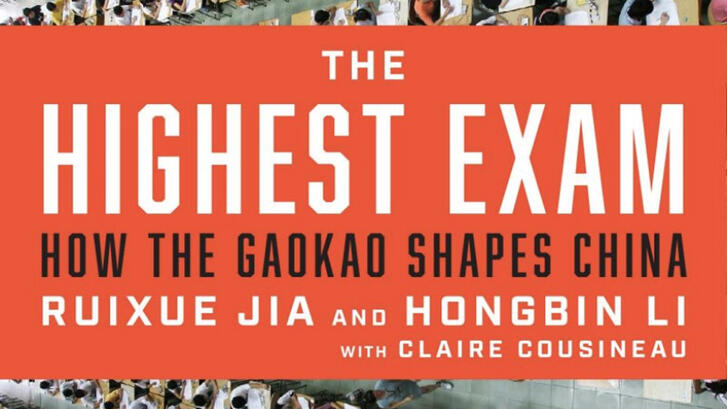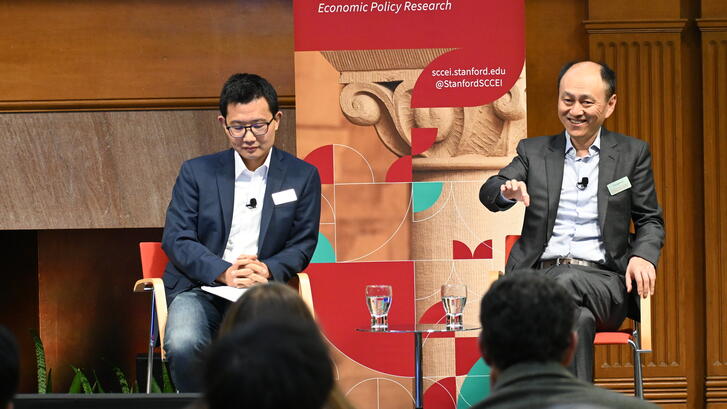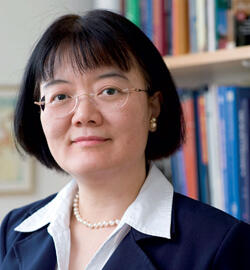Authors of "The Highest Exam" Explore China's Gaokao on the New Books Network Podcast
Authors Ruixue Jia and Hongbin Li join podcast host Peter Lorentzen to discuss their new book, The Highest Exam: How the Gaokao Shapes China. The book offers a detailed, research-driven look at the gaokao — China's high-stakes college entrance exam that determines university placement for millions of students each year.
Peter Lorentzen, a former SCCEI Visiting Scholar and economics professor at the University of San Francisco, hosts the New Books Network podcast. In this episode, he speaks with Jia and Li about their findings and what the gaokao reveals about education, opportunity, and society in China
Listen on online or download on Spotify.
Read More
Authors Hongbin Li and Ruixue Jia sit down with podcast host Peter Lorentzen to discuss their new book The Highest Exam on the New Books Network Podcast.




